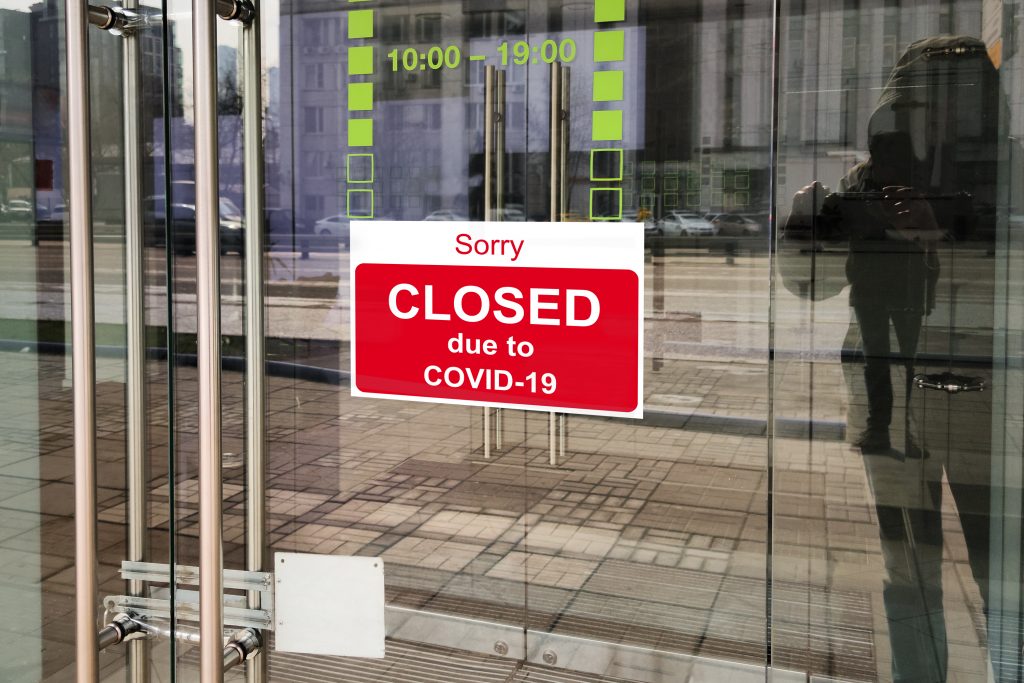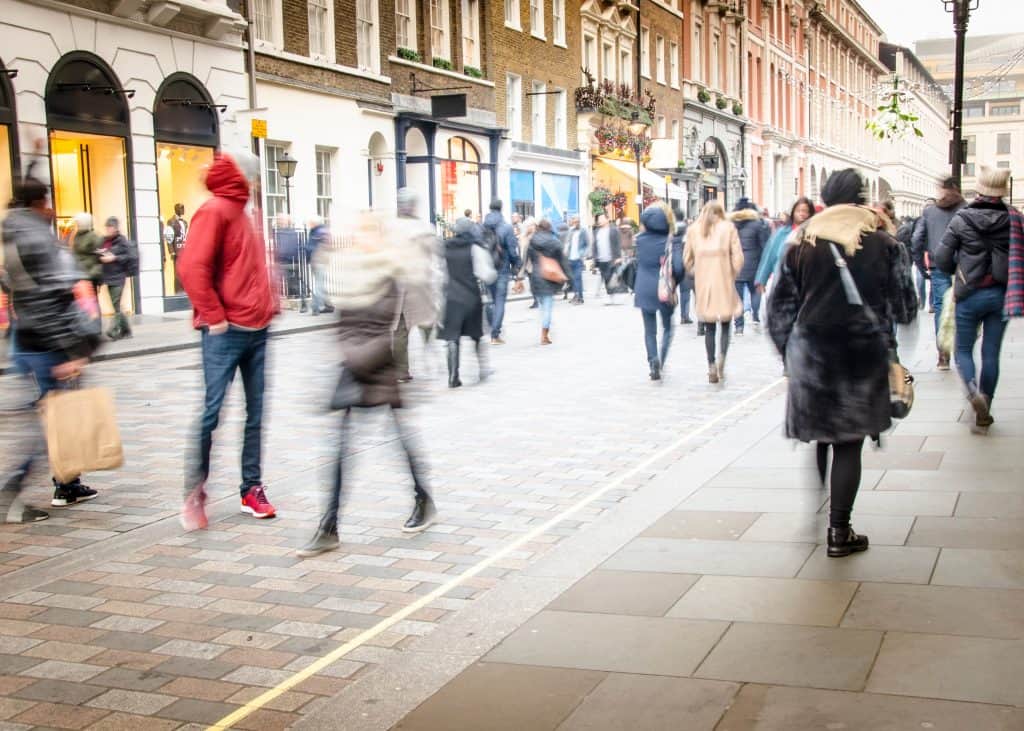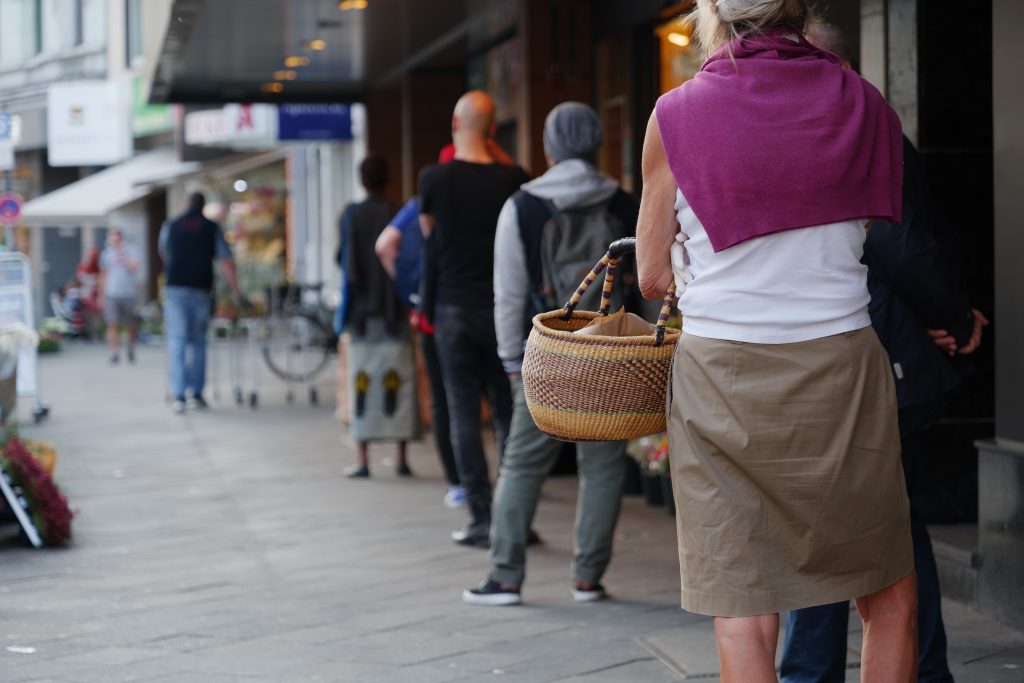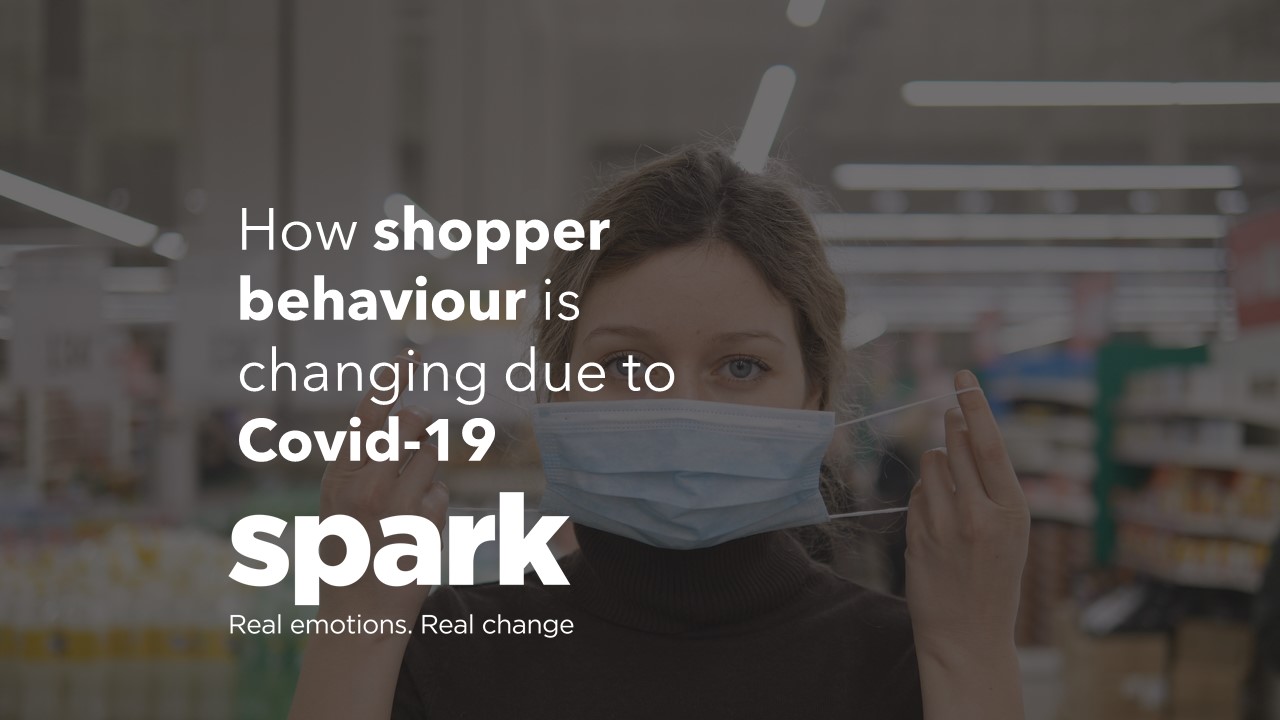Like us all, over the past few weeks we have been reflecting on the impact that Covid-19 is having on almost every aspect of our lives. Naturally, the challenge is much greater than business and commercial value, and we feel more convinced than ever that we can pull together and take some positive actions as we push through such adversity. It’s clear the world is changing, but we don’t know how and wanted to find how Covid-19 is influencing shopper behaviour
Our team of experts will help explain the Covid-19 impact on shopper behaviour
We brought together a team of experts from consumer psychology, retail operations and customer marketing to help to understand how Covid-19 is impacting shopper behaviour and what this means the retail market. We also outline what impact we think Covid-19 will have on short, medium, and long-term shopper behaviour. Our business is built on bringing together industry leaders and behavioural expertise and we are delighted to share with you a perspective on such a critical subject.
As the government lays down its framework to ease us out of lockdown, we wanted to share over the coming days a paper which aims to take a look at the market, how behaviour has been impacted, how people are feeling right now, what retailers are doing, and how, through academia, we can help.
We’re genuinely looking forward to helping stimulate some further discussion over the next few weeks and would welcome any hints and tips that can contribute to positive behavioural changes and also actions that can help business get fully going again in the future.
Dr Gareth Harvey, Chartered Psychologist & Bangor University Course Director and Lee Harrison, Managing Director at Spark Emotions, will begin by outlining the first few elements of our observations below and look forward to sharing the full paper in coming weeks with contributions from other team members and thought leaders.
The structure of the paper will be;
- What do we know about the initial effects on the economy and shopper behaviour
- How are people feeling right now – through the lens of behavioural science
- What is the retail industry doing about Covid-19 – executional analysis
- What have we learned from history – academic case studies
- Pushing through the pandemic – putting it into practice

What do we know about the initial effects of coronavirus on the economy?
UK grocery sales – As people are spending more time at home, aren’t able to dine out and are worried about their finances, we have seen take-home grocery sales up by 9.1% in the 12 weeks to 19 April (Kantar April 2020). Even though foodservice is still active, with takeaways still operating and restaurants branching out, people are cooking at home to keep themselves busy, whether it be occupying kids and improving their own baking skills (Mintel – Covid-19: The long-term implications for UK consumers, March 2020). With the government announcing the hospitality industry will open July 1st at the earliest, elements of this dynamic look set to continue.
UK online retail – Online sales are soaring, with Grocery online sales accounting for 10.2% of overall grocery sales in April and 7.2% in March (Kantar April 2020) versus 5.4% in January (Office for National Statistics February 2020). We’ve also seen other categories show significant sales increases, with beauty up 140%, electricals up 90% and garden 70% (internetretailing.net, April 2020). On the other hand, clothing has really struggled, seeing a 20% drop as people not feeling the need to update the wardrobe when stuck in the house. (internetretailing.net, April 2020). The initial observations here are how much of this is a temporary measure and what is the impact on profitability models when you factor in the additional costs.
Retail categories – With the changes we’re seeing in buying behaviour, there are categories who are flourishing and categories that are really struggling. We’ve seen grocery sales soaring, the year-on-year grocery market has grown 5.5% over the past four weeks in April and a massive 20.6% in March (Kantar April 2020). There has however, been losers, clothing has been a noticeable loser during the crisis, with Primark reportedly selling nothing since the lockdown (BBC, April 2020) and in early April, we heard ASOS sales slide 20-25% in the 3 weeks prior (Reuters April 2020). The industry across all categories play such a key role in the UK economy and we feel deeply saddened by the impact it is having on many businesses.
Through this paper we aim to bring some focus on current shopper behaviour, especially the topical elements today. We hope to stimulate some debate, and help retailers take some considered time to ensure they are doing everything they can to protect the public and support getting the sector firing again.

An increased focus on improved hygiene
When the press reported the first case of COVID 19 in the UK, the general public had no idea how they were meant to respond. In countries where flooding, hurricanes or earthquakes are common, people know what to expect and how to prepare. They know that water and electricity might be off for three or four days, so they know how to prepare for such eventualities. Yet with Coronavirus (COVID-19), nobody really knows what to expect and its characterised by lots of features that make it seem scary. You can’t see it; people haven’t come across something like this before and we perceive that anybody could infect us. Consequently, this really intensifies our feeling of powerless and lack of control – two states that humans really struggle to deal with.
As a result, we want to convince our self that we have taken all practical measures to regain a sense of control. The initial government advice was to just wash your hands thoroughly for 20 seconds, but intuitively this doesn’t feel like it’s enough. It doesn’t feel proportionate considering all of the media attention that’s been given to the virus. Consequently, we make up for it by doing something tangible – buying toilet roll and bottled water!
The lack of control also explains, why people we’re more likely to panic buy items related to personal hygiene and practical items. Previous academic research has demonstrated that when consumers feel like they’re not in control of a situation, they’re more likely to buy practical items (for example cooking ingredients, toilet rolls, or household cleaners). By buying these products they’ve been shown to actually help lower consumers stress and anxiety levels. The virtuous nature of these purchases means that consumers experience less guilt about these purchases than if they purchased luxury products (in an effort to make themself feel better in the lockdown).

Social distancing and cancelling all but essential travel
It very quickly became apparent that life in the UK with Coronavirus was certainly not business as usual. However, nobody was really sure how we were meant to behave. In these situations, we tend to rely on heuristics or mental rule of thumbs that guide us on how to behave. In this case two of the most common heuristics people employed were ‘Social Conformity’ and ‘The Mere Exposure Effect’. Social Conformity, colloquially referred to as “Social Norms” means that if we’re not certain how we’re meant to act in a given situation, we look to see what other people do, and then mimic their behaviour. When it’s described in this way it makes it sound like a very cognitive process, but in practice, it’s far subtler than that. With the COVID outbreak, the press and government advice kept telling everybody to stay 2m apart. This gives the impression that virtually everybody is to be social distancing themselves and so we mimic this behaviour.

Yet the fact that everybody keeps talking about social isolation leads us onto the second behaviour change tactic. Social psychologists have demonstrated that we develop a preference for; things, people, or even messages, just because we’re more familiar with them. This is because every time we’re exposed to a stimulus, our level of perceptual fluency improves. At the most basic level, perceptual fluency is the ease at which our brain can process the stimulus, in this case, a message. The greater the perceptual fluency, the more we like the message, the more we’re likely to accept the message, and more importantly, the more likely we are to change our behaviour. So, the more people keep talking about social isolation and staying at home, the more likely we are to stay at home.
Stockpiling of food drink and personal care products
As we’ve said earlier, if we’re not sure how we’re meant to act in any situation, we look to see how other people act and mimic them. And when it comes to shopping (and panic buying), it’s the same situation. With everyone talking about stockpiling items (on the news, social media), we subconsciously think that, ‘hmm they must know something I don’t, maybe it wouldn’t be a bad idea to pick up X’. This idea of wanting to stock up though in itself isn’t irrational. Prospect theory, which is at the heart of most of decision-making, proposes that people make decisions not based on a cost-benefit analysis, but based upon the idea how will the decision will make us feel.
All things being equal, a loss is emotionally 2.5 times more powerful than the equivalent gain. Or to put it another way, the emotional pain we’d experience from losing £10 is equivalent to the emotional gain we’d experience if we unexpectedly found £25. This leads to a related concept of loss aversion.
When it comes to making decisions, humans have a tendency to prefer avoiding losses, even if it comes at the expense of equivalent gains. Shopper behaviour is significantly influenced by that, for example, at the moment we’re worried that if we don’t stock up on X now, then we may miss out on the chance of stocking up in future. As a result, we decide it’s probably better to buy the product now.
Of course, it would be impossible not to mention the stockpiling of toilet rolls. Toilet rolls are big bulky items. If a supermarket sells out of a few brands of toilet rolls, there are going to be vast empty spaces on the shelves. Normally, this wouldn’t matter (and that most people wouldn’t even notice). However, with everyone talking about people panic buying, this is making the concept more salient and we notice these empty shelves. We’ll also notice people with toilet roll in other peoples’ trolleys – all of which remind us that, hmm maybe I should stock up before it’s too late.
Our team of experts are looking forward to sharing with you each segment of the paper in the coming days and weeks, and the findings of our live and up to date study on shopper behaviour and how people are feeling during this pandemic. If you would like to find out more please fill in your details on our contact form and one of the team will be in touch. Alternatively, if you would like to read more about how shopper behaviour has been impacted by Covid-19, click here for more articles





